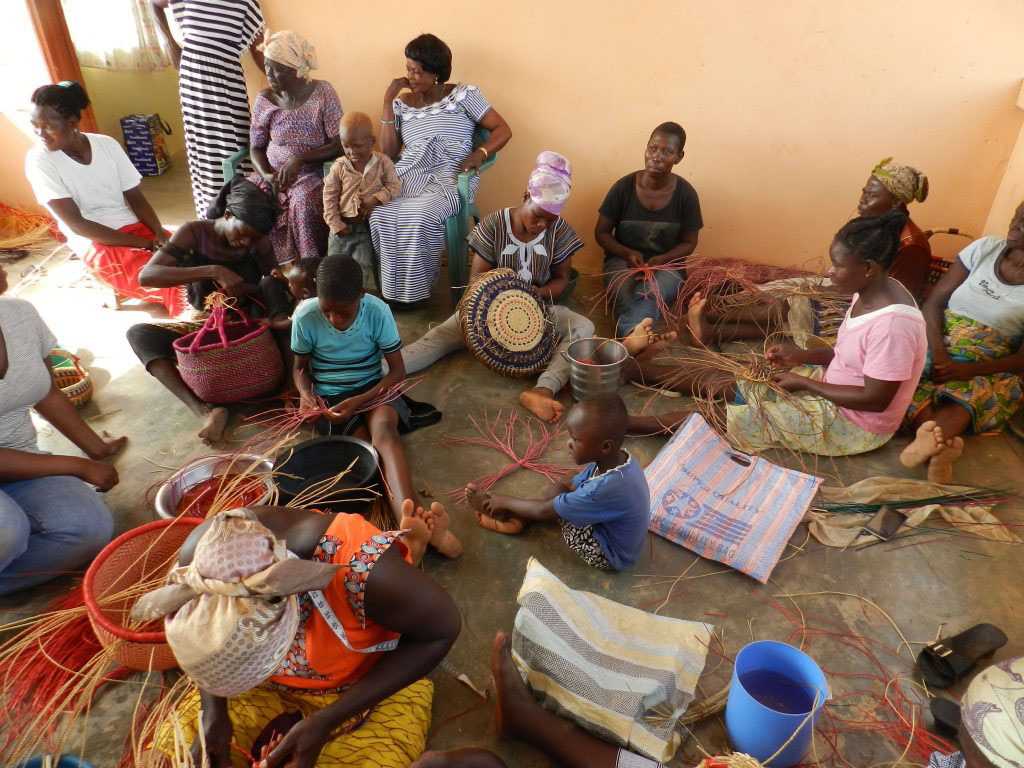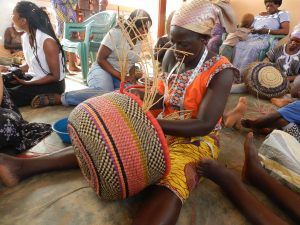BOLGATANGA, Ghana. In the exhausting heat of the Upper East Region in Ghana, Celia Atambire, dressed in an elegant black and red floor length skirt and matching top, met with a group of other single mothers to make baskets last Saturday afternoon. Atambire is the secretary of the group, an association of single mothers, which has a total membership of 35.
Basket weaving is the primary means of financial support for these women, who make vibrant, functional decorations and sell them at the local Bolgatanga market.
They sit on the concrete floor of their open-air structure in the desert like terrain each day and focus intently on their products.
“Everyday some people will be here weaving,” said James Suran-Era, a guide in Ghana’s Bolgatanga region. All the while they manage to simultaneously attend to their children.
On Saturday, they greeted a visiting group of students from an American college by breaking out in song and dance, radiating laughter and high spirits.
Other than a few other products they sell at the market that come from the farms they live on, the women depend solely on the trade. They buy the straw for the baskets at the same market where they sell their finished products. They dye it and weave it together.
Atambire said they also teach their children to learn to weave at a young age: around four or five years old. The trade is traditional in the region; Atambire said that the forefathers of the women surrounding her were also basket weavers.
The prices of the baskets depend on the size, but some larger sizes sell for 30 Ghanaian cedis, ($7.61), according to Modester Aasisb, a 19-year-old who has no children herself but has been making baskets with the women for 10 years now.
Atambire said it takes the women about two or three days to make a large basket. However, Aasisb said that she can finish one in a day if she focuses. “If you just sit on it from the morning to the evening, you can make it.”
The baskets provide a livelihood for the group of women, many of which are raising kids on their own due to cultural practices. Atambire said, “The basket, that is the cheapest trade we can do. It is better than selling rice.”


